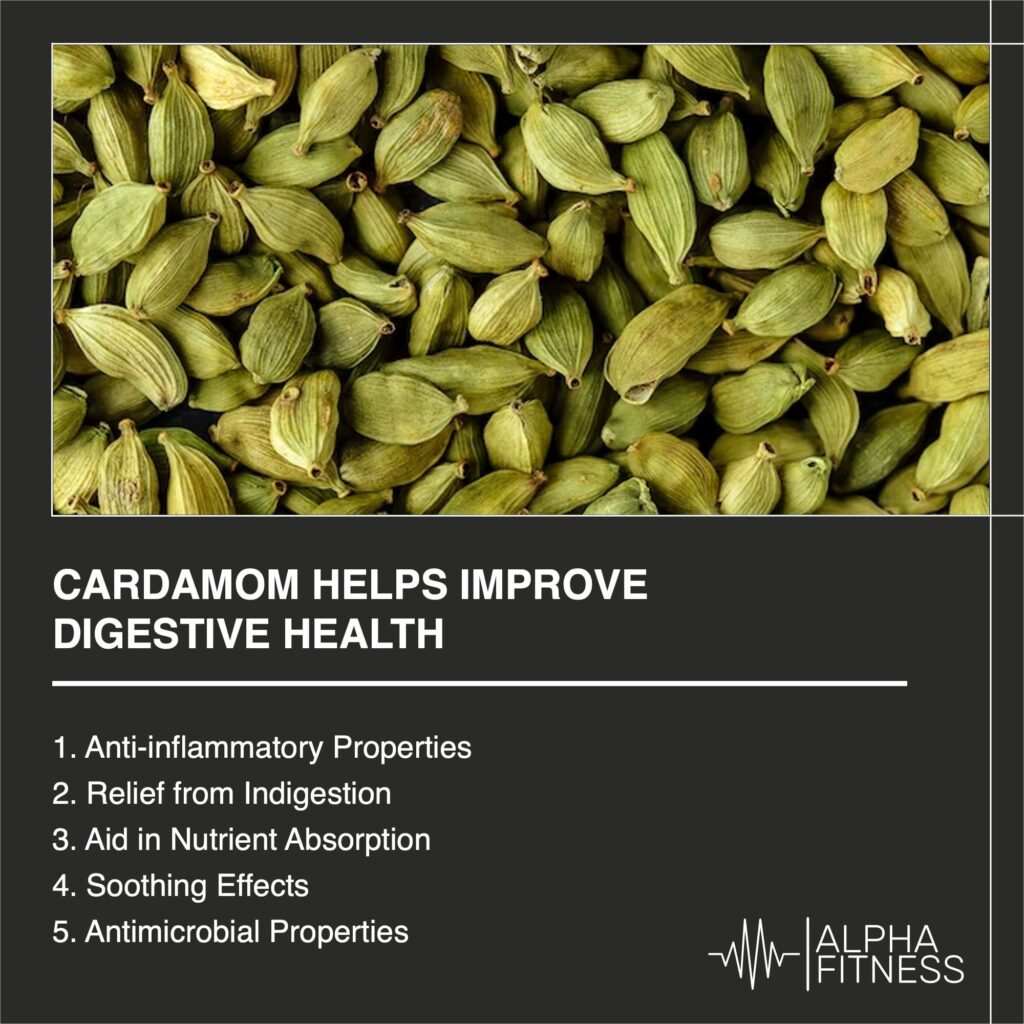
Below is a list of useful links:
- How can vitamin B consumption reduce mononucleosis?
- Pomegranates are a great food for stroke recovery
- How does sunlight kill the rabies virus?
- Eat less sugar to get rid of diabetes
- How quit smoking can goodbye the asthma?
Cardamom, a flavorful spice commonly used in sweet and savory dishes, has been linked to improved digestive health. Here’s how cardamom may help promote better digestion:
Anti-inflammatory Properties: Cardamom contains compounds with anti-inflammatory properties. Inflammation can contribute to digestive discomfort and conditions like irritable bowel syndrome (IBS). The anti-inflammatory effects of cardamom may help alleviate digestive issues related to inflammation.
Relief from Indigestion: Cardamom has traditionally been used as a remedy for indigestion and gas. Chewing cardamom seeds or sipping cardamom tea after meals may help relieve bloating and discomfort.
Aid in Nutrient Absorption: Some components of cardamom may enhance the activity of digestive enzymes in the body. These enzymes play a crucial role in breaking down food and facilitating nutrient absorption, which can lead to improved overall digestion.
Soothing Effects: Cardamom’s aroma and flavor are often described as soothing. This can have a calming effect on the digestive system, potentially reducing stress-related digestive issues.
Antimicrobial Properties: Cardamom contains compounds that have antimicrobial properties, which can help combat harmful bacteria in the gut. Maintaining a balanced gut microbiome is essential for healthy digestion.
Alleviating Nausea: Cardamom has been used as a natural remedy for nausea and motion sickness. It may help calm an upset stomach and reduce feelings of nausea.
Support for Gastrointestinal Health: Some studies suggest that cardamom may have a protective effect on the gastrointestinal lining, potentially reducing the risk of gastric ulcers and other gastrointestinal issues.
It’s important to note that while cardamom can offer potential digestive benefits, individual responses may vary. Some people may find relief from digestive discomfort by incorporating cardamom into their diet, while others may not experience significant improvements.
You can enjoy cardamom in various ways, such as adding it to dishes like curries, rice, desserts, and teas. Cardamom tea, made by steeping crushed cardamom pods in hot water, is a popular choice for its digestive benefits and pleasant flavor.
If you have specific digestive concerns or chronic digestive issues, it’s advisable to consult with a healthcare provider or a registered dietitian. They can provide personalized recommendations and guidance tailored to your digestive health needs.




4 thoughts on “Cardamom helps improve digestive health”